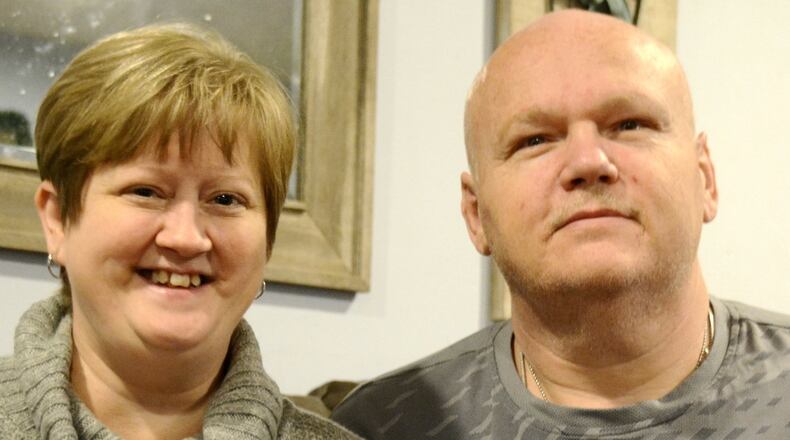“It’s been a long ride,” said Aaron, “a long ride.”
Keli Thorn found out she has polycystic kidney disease, a genetic disease, in 2009 when she was 32. In September 2019, Keli was told her disease reached Stage 4. Over the course of 2020, Keli had been receiving dialysis treatments three days a week.
Polycystic kidney disease affects not only the kidneys but other organs, according to the U.S. National Library of Medicine. Clusters of cysts form in the kidneys and interfere with the kidneys’ function, filtering waste from the blood. The cysts cause the kidneys to become enlarged and can lead to kidney failure.
Keli and Frappier were matched over the summer, but delays, including a broken ankle by Keli, caused the transplant to be delayed in 2020. Since the transplant date is now in 2021, the Thorns, of Fairfield Twp., have to once again match their $5,000 insurance deductible.
Aaron said his family “couldn’t do it alone,” and still needs assistance heading into his wife’s February surgery.
The cost of pre-transplant care is overwhelming, which is why the Thorns are being assisted with Help Hope Live, a nonprofit medical fundraising organization. It helps start fundraising campaigns for out-of-pocket medical costs during a medical emergency, like a transplant, said Emily Progin, a spokesperson for the organization.
Donations to support Keli Thorn can be made at helphopelive.org, and donations are tax deductible and every patient’s medical need is verified with a medical professional. The organization pays medical bills and related costs directly, and do not impact any state-based medical benefits.
With the transplant set, and Keli being cleared for the surgery thus far, Aaron said they are “excited but tired.”
About the Author

